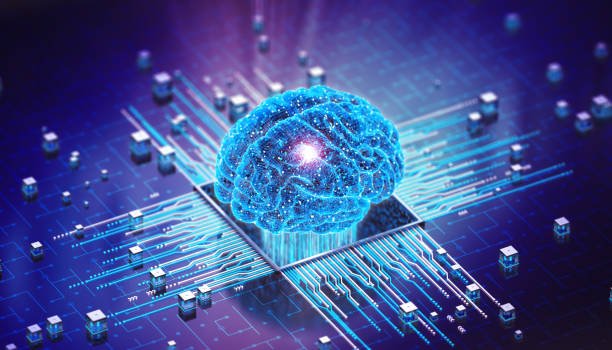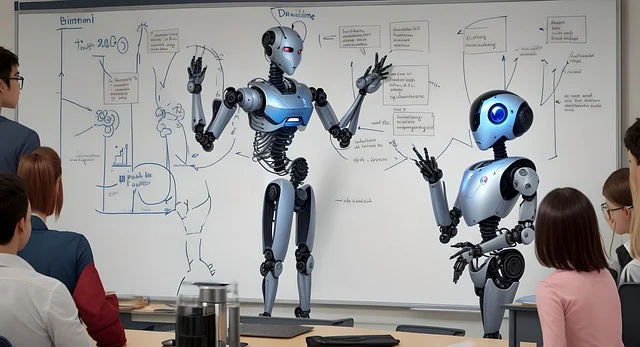Age of Generative AI: Digital, Technical And Soft Skills Required For Success

Age of Generative AI – Lately, AI tools like ChatGPT have been getting a lot of attention in the news.
Much of the focus and talk has been about the mistakes these tools can make at times, and worries about people losing their jobs to artificial intelligence.
One important point is that generative AI technologies are altering the way we do things at the workplace and in our personal lives. These tools are also making businesses work differently. Therefore, employees will have to learn new abilities.
This blog series has two parts. It talks about the skills workers will need in the era of generative AI.
Later on, we will talk about the important skills that are not related to technology but are gaining more importance as AI technologies become more common.
In this blog, we will talk about four important skills needed now that generative AI is available for free. These skills are related to digital, technical and soft areas.
Read: The Power Of Generative AI In The eLearning Industry
Age of Generative AI: Digital And Technical Skills
AI Prompt Skills
In the future, it will be important for workers to have skills in AI prompting. This is because AI systems can create text, images, and code on their own. This is mainly because using this technology will improve productivity and creativity.
AI prompting skills refer to the ability to write prompts and questions that can get good and meaningful responses from AI models.
When writing AI prompts and questions, it’s important to consider cultural backgrounds to make sure the responses connect with people in different places.
For instance, using an AI tool to create a reply that connects well with customers, partners, and/or colleagues in both the UAE and Saudi Arabia.
When workers have good AI prompting skills, they will be more prepared to use technology to make tasks automatic, create content, and solve difficult problems quicker and with less effort.
Without the ability to prompt AI, workers may have difficulty effectively interacting with generative AI systems. As a result, they will lag behind in digital literacy and competency.
E-learning helps workers get better at using AI so they can keep up with the rapidly changing world of AI. It also helps your organization make the most of this technology.
Adaptability
In today’s world, where artificial intelligence is improving and more accessible, it is important to be adaptable and not overlook its significance.
Workers need to be able to adapt to new technology and changes in business in order to keep up.
More and more advanced AI technologies will come out, and the ones that already exist will keep getting better. This means workers should be able to quickly change and learn how to use them to benefit themselves.
In addition, more and more AI being used is changing the types of jobs and tasks that people have.
Therefore, it is important for workers to be ready to adjust to different jobs or gain new abilities to stay important in their industries.
Being adaptable means being able to change your thoughts or actions when needed. It means being open to new ideas, being able to adjust and being ready to gain new knowledge.
Workers who can adapt to change are able to accept and adjust to new things, learn new abilities, and stay ahead in a fast-changing work setting.
Verification Skills
As more and more AI technologies are used at work and in society, it is becoming very important for workers to have good verification skills.
Verification skills are very important to make sure that the work done by workers using AI tools is accurate, relevant, and fair. It is also important for workers to verify the information that is generated by AI.
Verification skills refer to the capacity to assess generative AI responses in a careful and analytical way. The most important things that workers should be able to recognize include:
- Obvious and potential errors
- Biases
- Inconsistencies
- Irrelevant or misleading information
With good checking abilities, employees can find and fix errors, improve AI suggestions to create better answers, and make sure the results match objectives, quality standards, and other needs.
If workers don’t check AI-generated answers properly, they might end up using wrong or unfair responses without realizing it. This can result in low-quality outcomes, harm to their reputation, or even legal problems.
Once more, online courses can assist workers in enhancing their verification skills.
Awareness of Digital Threat
Generative AI is causing change in different areas, including the digital threats online. In simpler words, the use of generative AI technologies has made the digital threat landscape grow, at least for now.
So, it is really important for employees in modern workplaces to know about digital threats.
Digital threat awareness skills help workers to understand and deal with different types of risks and weaknesses in technology.
This includes being able to see and prepare for possible dangers in advance, as well as knowing how to react if something goes wrong.
- Cybersecurity
- Data privacy
- Intellectual property
- Copyright violations
- Fake information
- Ethical considerations
Workers who have knowledge about digital threats can assess the potential risks that come with using generative AI tools.
They can also create plans to reduce and handle these risks, and make sure that the organization’s data and systems are safe and reliable.
You should learn how to detect digital threats as part of your cybersecurity training. The goal is to help employees understand the specific risks that the organization may face due to generative AI. Here are a few examples:
An AI voice pretending to be someone we know, trying to get into our stuff.
Sharing or posting content created by AI that infringes on someone else’s intellectual property or copyright.
Fake, computer-generated pictures are being used for two different purposes. On one side, they are used to threaten the company with harm if they don’t comply. On the other side, they are used to gain undeserved confidence from people.
Age of Generative: Soft Skills
In a world where generative AI is more common, having good soft skills will become more and more important.
We will talk about the most important abilities that workers will need. These abilities are called soft skills and they are valuable for your organization in ways that AI tools cannot replace.
Critical Thinking
Generative AI technologies can do many different things, but they are not good at thinking critically.
Workers who have good critical thinking skills can play a valuable role in making big changes, coming up with new ideas, and finding new chances for success. Thinking carefully and using common sense are also important for finding and lessening dangers.
Thinking critically is crucial in a world where AI can now do tasks that humans used to do. Moreover, critical thinking is also essential when using AI tools.
Artificial intelligence technologies that create their own content sometimes give wrong, unfair, or incomplete answers.
So, critical thinking is important because it helps employees gain useful skills and enables them to make the most of generative AI technologies.
Leadership
Companies and organizations in every industry are figuring out how to make the most of generative AI and other AI technologies.
Because of this, these technologies are being added to more and more tasks and activities. One thing that generative AI cannot do is take charge or guide people, teams, or organizations.
So, employees will still have to learn how to be leaders in the modern workplace where generative AI is frequently used. Leaders become even more important when big changes happen in organizations.
Creativity
Creativity is being widely discussed in the early days of when generative AI is widely accessible.
Ultimately, generative AI technologies have the ability to write poems and stories, as well as create images.
In the business world, generative AI can create social media posts, blogs, and advertisements. Is this being creative.
Maybe not for many different reasons. First, a lot of the “creative” stuff made by generative AI is boring and lacks emotion. Easier words: When people think the content made by AI is good, it’s actually because humans gave the AI good instructions. This is how AI works for now.
So, even when generative AI is creating artistic content, it is doing it with the help of a human. Moreover, there are only a few areas where generative AI can assist with creativity.
This means that creativity is a very valuable skill and it is important for workers to have it because it will continue to be needed in the future.
Problem-solving
AI technologies that create things by themselves can be useful for workers to solve many problems, but the most important thing to remember is that they can only provide assistance.
People are the ones who solve problems. They do this by thinking carefully, making judgments, using critical thinking, or guiding helpful AI technologies to get the best outcomes.
Being good at solving problems is really important for companies in lots of different industries. So, workers need to keep getting better at this skill.
Communication
Having good writing, speaking, and presenting abilities has always been significant, but these skills will be even more valuable now that generative AI is widely used.
This is because abilities like talking and listening well will be more important as AI takes over jobs that people usually do.
In simpler terms, workers will need to be good at working together and presenting information for many jobs. Being able to talk or interact with generative AI tools will be crucial.
Emotional Intelligence
AI that generates content or performs tasks lacks the ability to emotionally connect with people and doesn’t possess any emotional understanding.
For instance, AI technology that creates things on its own cannot recognize when someone is feeling anxious or sad based on the way they speak or act. Only humans have this kind of skill.
Emotional intelligence skills make teamwork better, help people work together, solve conflicts, and build trust in organizations. Managers who are good at understanding and managing their emotions are also better at leading others.
In a world where artificial intelligence (AI) technologies may make some skills less necessary, emotional intelligence will become more important.
Staying Ahead
Businesses in different fields are working fast to learn how they can gain advantages from the rapidly changing abilities of generative AI.
Workers should not get left behind in this competition because generative AI technologies are most effective when they are operated by experienced and educated workers.
Advanced AI technologies are now accessible to workers and companies. It is important to prioritize enhancing your team’s skills in AI.







